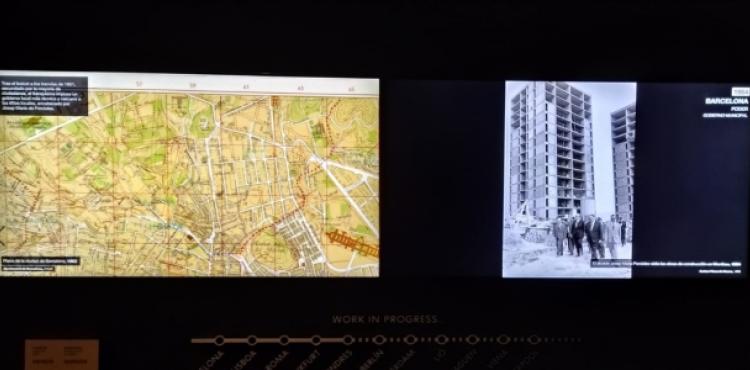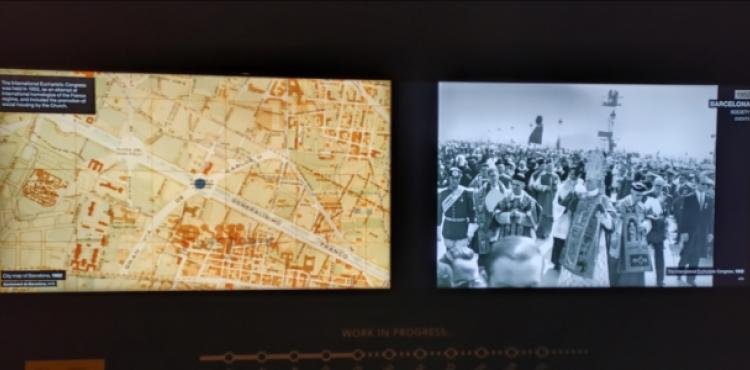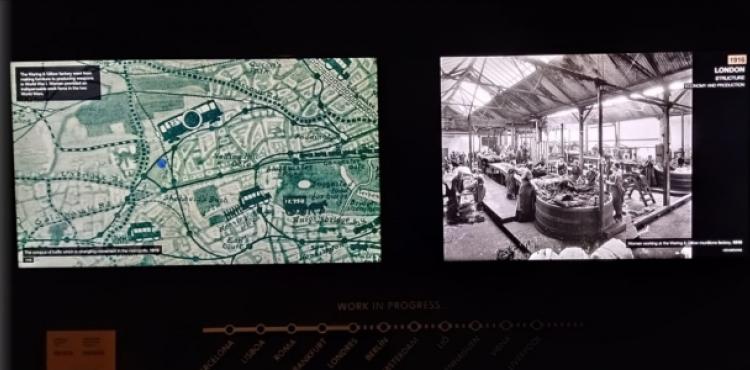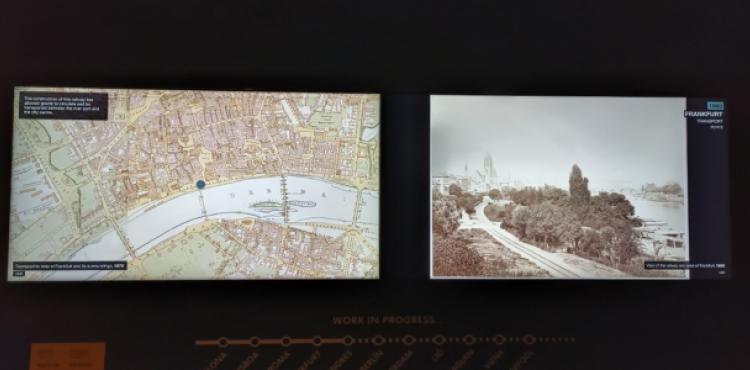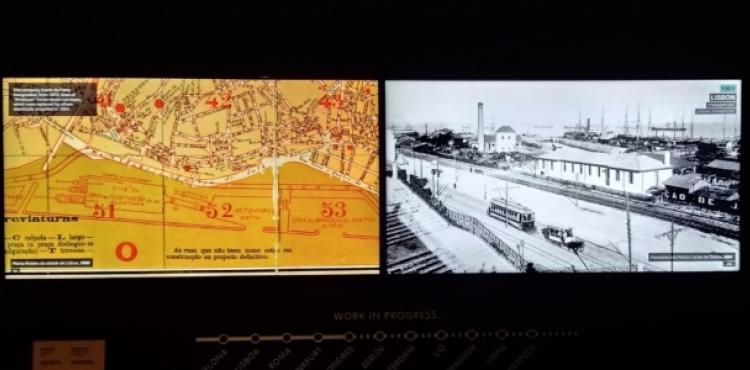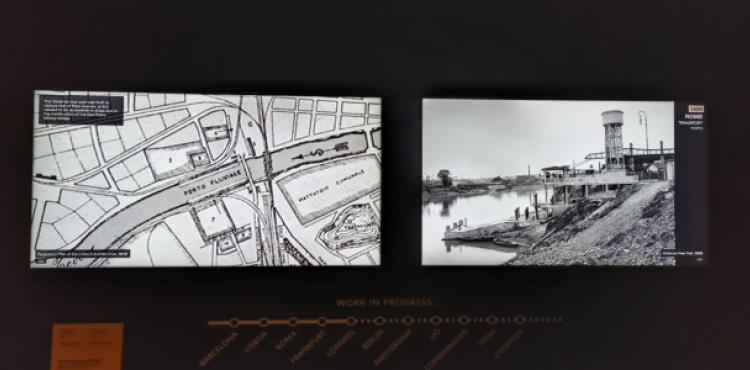The Europa Inter Urbes Project
One of the purposes of the Barcelona Flashback exhibition is to present and explore the history of the European cities from their past, and also by comparing their historical trajectories in diverse areas. This can help us to understand the evolution of cities in an approach that may differ from the traditional history which is country centred.
The Europa Inter Urbes digital project has been carried out with the company Wasabi Producciones and with European city museums that form part of the informal network City History Museums and Research Network of Europe, led by the MUHBA. The result is an interactive program that invites the visitor to actively consult these stories. Although this is a network shared project launched at the Flashback Exhibition by the MUHBA, it’s designed to become a means to be used by all the participating museums.
This tool is intended to share some precious sources kept in our city museums. They offer visitors the possibility to learn and compare the historical processes that have taken place in Europe since the 1850s. The project is currently in an expansion phase and it already offers the possibility to browse on five cities, Barcelona, Lisbon, London, Frankfurt and Rome from the 1850s to our days. In the immediate future several city museums have expressed their will to be included. And we certainly encourage them and many others to take part in this new means to approach visitors to our museums.
Vídeo about the project Europa Inter Urbes
The Exhibition Room has two screens, and a digital screen with the map of Europe.
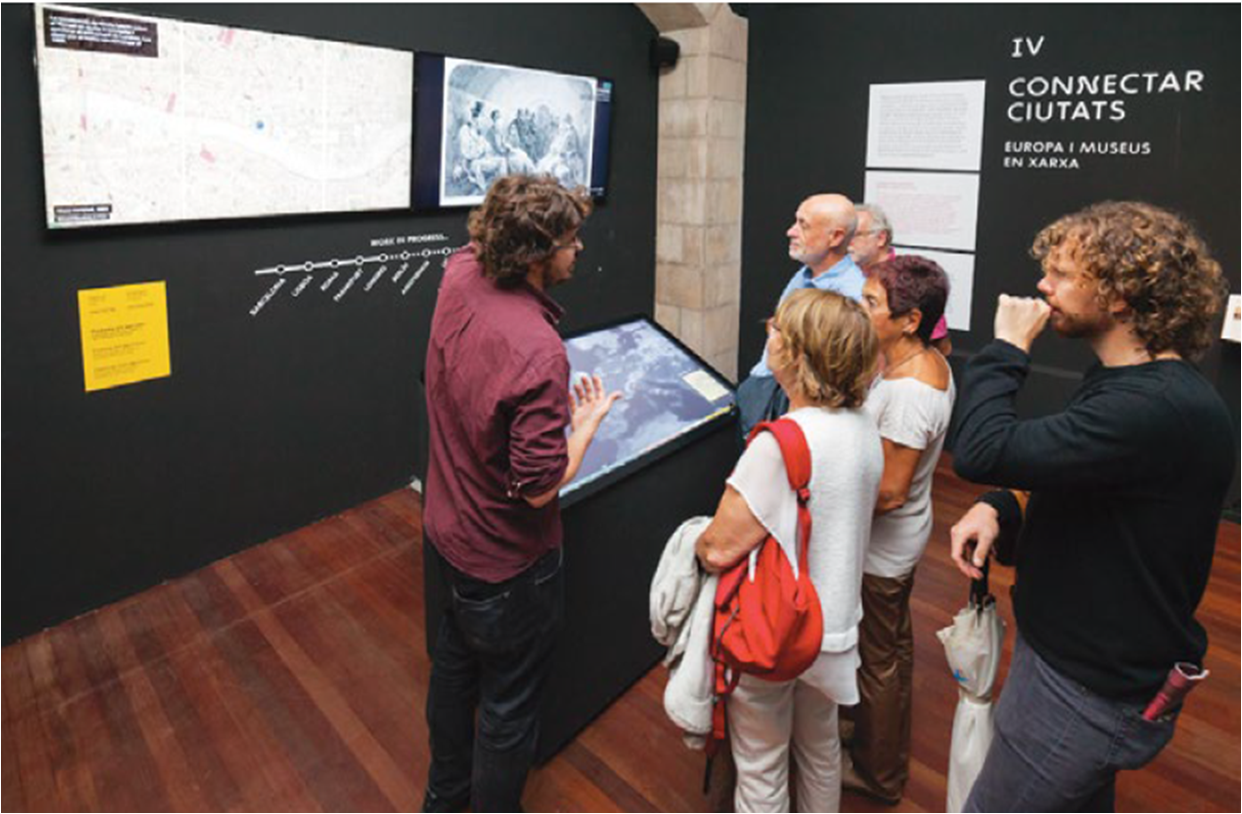
How does it work?
The visitors choose a city, browse a category on a specific period and they will see a representative image
and its location in the corresponding historical map.
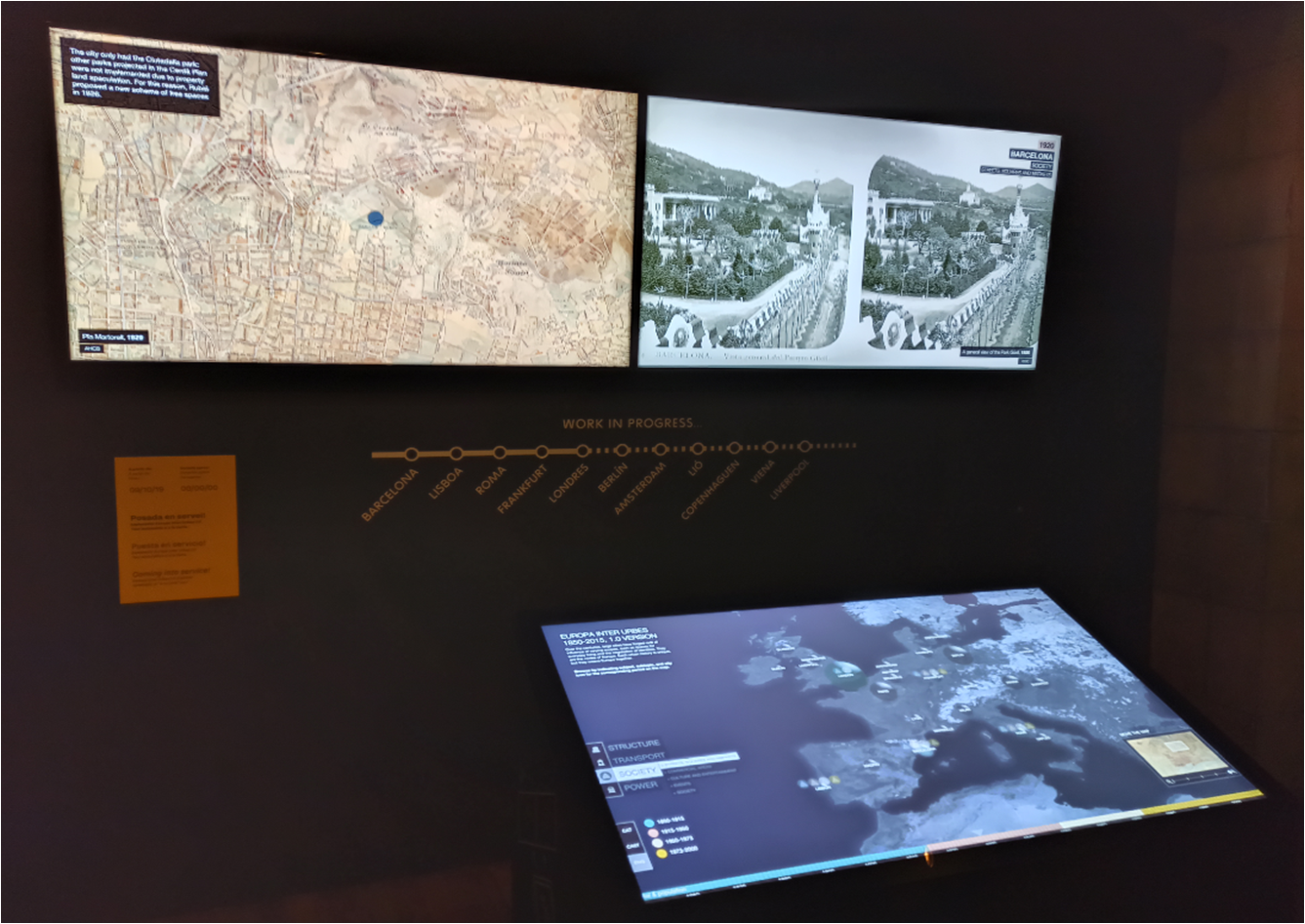
The visitor has to select a city and browse
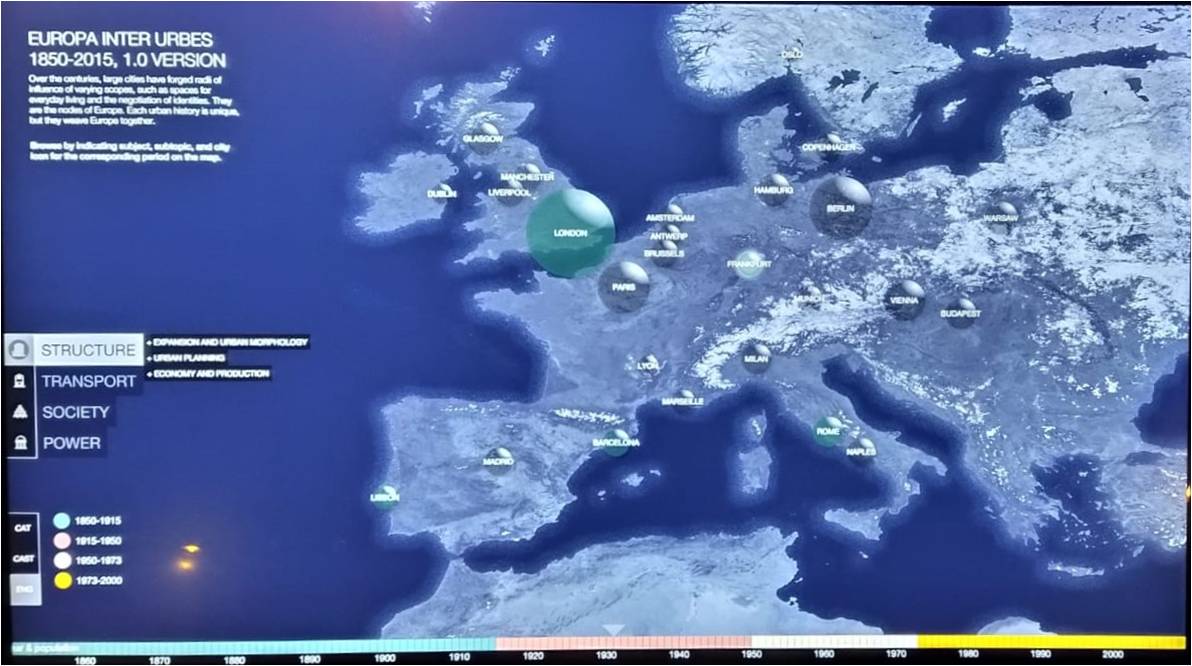
The information has been organized according to the following categories:
1.1 Expansion and Urban Morphology 1.2. Urban Planning 1.3 Economy & Production
2.1 Railroads 2.2. Ports 2.3. Airports 2.4. Urban Transport 2.5. Urban Infrastructure
3.1 Streets, Squares and Markets 3.2. Commercial 3.3. Culture & Entertainment 3.4. Events 3.5. Society
4.1. Institutions 4.2. Municipal Government 4.3. Tensions 4.4 Symbols, Memory and City
Some examples



